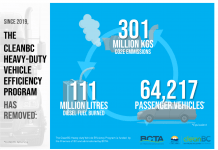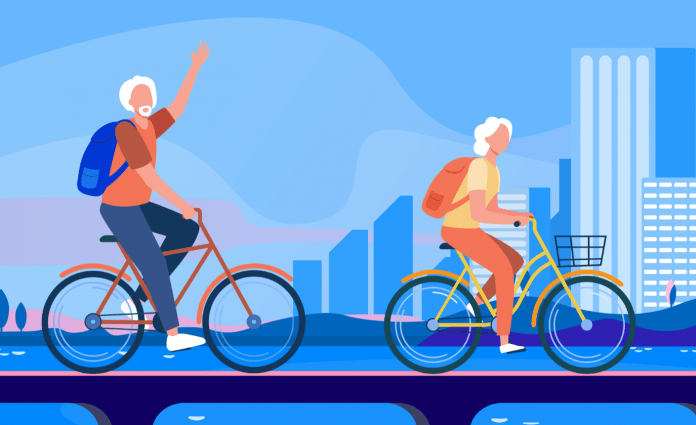Not all of COVID-19 was harmful or negative. As businesses, gyms, restaurants, and movie theatres closed up, the great outdoors opened up. We flocked in ever-increasing numbers outside simply for the joy of fresh and air and freedom. But we also communed with nature for the wellness of it, both physical and psychological. Gardening, walking, tennis, golf, kayaking, you name it, if it had to do with the outdoors, most of us joined in, with happiness and passion. One outdoor activity that took off both in Canada, but also around the globe was cycling.
The cycling boom has had so many positive effects, but there is now such a demand for bikes and repair services that suppliers can’t keep up. The Manchester Guardian says, “Bike retailers and manufacturers are struggling to keep up with demand as the cycling boom kicked off by the pandemic rolls into 2021, with customers gobbling up available stock “like piranhas”, according to one big retailer.
Stores sell out of bikes as soon as they are delivered with sales tripling and repair shops booming. “It’s been the busiest period of trading I’ve had in 27 years,” said Andy Rackstraw, owner of Saddle Safari in south Buckinghamshire, England.
This echoes the situation in Canada. Supply for bikes and repairs simply can’t match demand.
At Sidesaddle Bike Shop in Vancouver, the message when a customer calls warns that the store gets more than 400 inquiries a day.” We actually don’t even bother trying to answer the phone, which sounds like terrible customer service, but it’s just we can’t spread ourselves that thin,” said owner Andrea Smith. If we stopped to answer the phone we would not be able to do the assemblies and repairs that are backlogged from the overwhelming demand.
Bike shops are slammed, with a surge that started in March 2020 and has not let up, creating a backlog that some experts say won’t be cleared up for months or even years.
Bicycles provide an outdoor activity at a time when COVID-19 travel bans and lockdowns have made staying indoors either suffocating or dangerous.
Health officials have recommended outdoor activities, such as cycling while warning of the dangers of coronavirus transmission in gyms and on public transit. Providing a surge in demand for bikes.
Market research firm NPD Group says Canadian numbers aren’t tracked, but in the United States, sales of bicycles increased 75 percent in 2020 compared with a year earlier. For the first two months of 2021, the increase year over year was 130 percent.
Supply is also a problem for parts. Shipping containers are in high demand around the globe. Production and manufacturing slowdowns brought on by pandemic-induced regulations of social distancing, and finding staffing are found all the way up and down the supply chain.
Those wanting custom-built bikes may have to wait till October says one bike shop owner in Vancouver. Simple bikes that just require assembly will be sold out she says by May.
A manufacturer of aluminum bike frames in Quebec, Régnier-Bourque, says it takes about 150 parts to build a bike. “It was definitely a huge challenge for us to source parts. Unfortunately, we are not able to produce at the level we would want.”
The exercise benefits of cycling cannot be overstated. The average person will burn between 450 and 750 calories per hour cycling. Cycling has a magical combination of low-impact aerobic exercise along with numerous psychological benefits as well.
Cycling improves mood, mental health, helps you sleep better, builds new brain cells enhancing your memory, improves creative thinking, promotes new thought patterns that promote feelings of calm and wellbeing, and may even improve “bedroom activities”. All this says a wellness report from Australia.
Yes, cycling is good for your brain. Cycling can grow your brain in the same way it can grow your muscles. Blood flow to the brain increases just as it does with the muscles, bringing in more oxygen and nutrients that can improve its performance. Riding increases the production of proteins used for creating new brain cells by two or three times the norm. It also increases the activities that allow the different regions of our brain to communicate more effectively. Cycling counteracts the natural decline of brain function and development as we age.
Cycling when shared with friends and family, helps create stronger bonds and provides soothing memories of good times, adventure, along with all that fresh air and good old-fashioned fun.
After taking up cycling again, after a 4-decade hiatus, I felt like a kid again. Exuberant and free and full of adventure. I was soon discovering new sites almost right in my own back yard, as the bikeways carved around my city took me past nature spots, parks, and valleys, alongside rivers, ponds, and streams. My eyes were opened to a myriad of wildlife and nature, that had always been there, but were hidden from the roadways I drove my car along.
Cycling seemed empowering and exhilarating, I was the source of all the energy that moved me along at breathtaking speeds of 25 or 35 KM/H. Best be careful though, I did have a bad spill that sent me to hospital with a broken collarbone and a cracked bike helmet. I learned again about the exuberant adventures of youth and the frailty of life, if not for wearing that bike helmet I might not be writing this article.
It is only natural to look at the negativity of the pandemic. Imaging that COVID-19 would create unexpected booms in all sorts of outdoor pastimes would have been hard to imagine when it began. As we enter its second year so many of us are looking forward to playing and exercising in the open air and the great outdoors. There is no doubt that the boom in cycling is brought not only because it has so beneficial for us in many ways, but also because it is so so enjoyable.
Improving our health and happiness at the same time can not be a bad thing. Ironically the pandemic has been the cause of rediscovering many former joys. One of them the joys and functionalities of cycling, creating a cycling boom that has become somewhat of a global phenomenon. Hopefully, you too can join in and recycle the fun, fitness, and well-being that cycling provides.






















